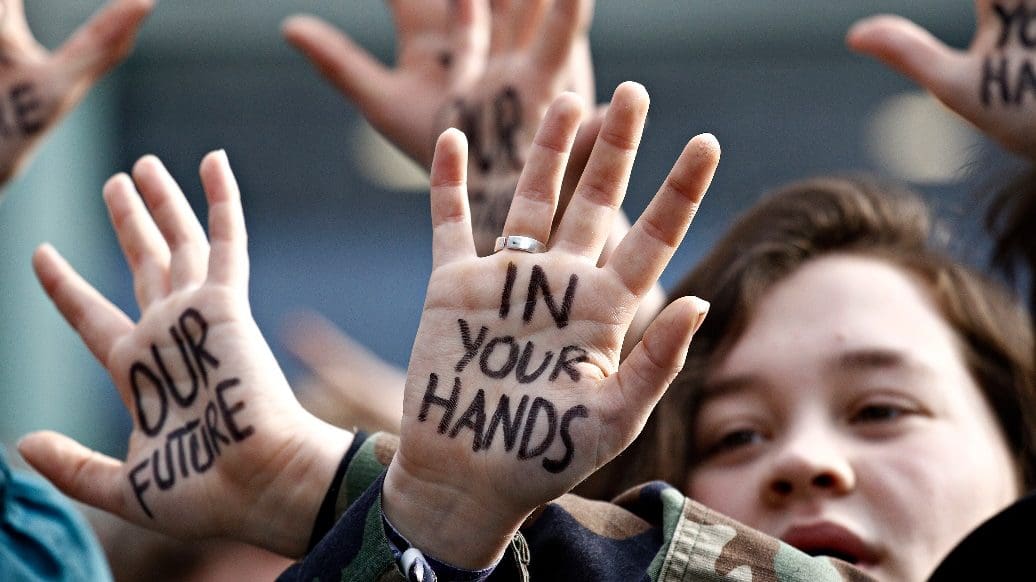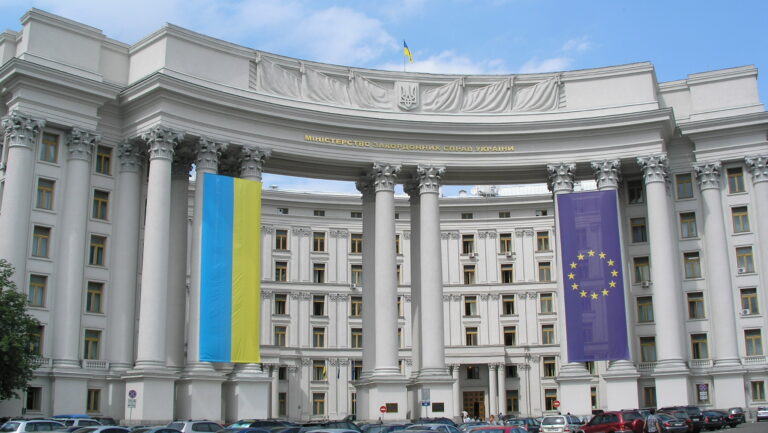‘Is the world on the verge of a second human rights revolution?’ asked Douglass Cassel, a law professor at the University of Notre Dame in the United States in the mid-1990s.1 The term ‘human rights revolution’ referred to the years following the Second World War, when, with the adoption of, inter alia, the UN Charter (1945), the Nuremberg Charter (1945), and the Universal Declaration of Human Rights (1948), the recognition and protection of human rights—hitherto cultivated within the nation state—became a matter of international law and international relations; that is, it became ‘internationalized’ through a ‘normative revolution’. And since then, international law has been constantly expanding and consolidating its competence over relations between state and people, especially when it comes to the human rights obligations of states, and even in the prosecution of public officials deemed responsible for grievously violating these obligations.
This represented a revolutionary—and also myth-generating—change, in that it set the standard of international law for the exercise of state power affecting people, and also established international legal responsibility for the exercise of state power affecting people. This period both reshaped and limited the classical reading of sovereignty, rooted in the theoretical framework of Jean Bodin and the Westphalian system, and broke with prior conceptions of international law, which considered the regulatory field of the discipline to be exclusively interstate, that is, concerning the relations between sovereign nation states. All of this paved the way for human rights to become the dominant narrative of the modern world. It is for this reason that diverse public policy, economic, social, and cultural aspirations are all expressed in the language of human rights. Without the internationalization of human rights, and its power to shape public policy, for example, the Helsinki process undermining the Soviet communist dictatorship could hardly have begun. On the other hand, the continuing strengthening and expansion of the ‘internationalization’ of human rights since then, detached from the original meaning of human rights, often bears the hallmarks of ‘social engineering’, and often manifests itself as a means of exporting and disseminating ideas or political views. The protection of human rights is not a commitment to an abstract idea, but can be realized within a political community that presupposes sovereignty. This is why one of the greatest challenges in the world today is to separate human rights from false human rights claims.
The change was not revolutionary—merely (false) myth-generating—in the sense that the entitlement to innate fundamental rights does not depend on state or international recognition and regulation, but rather on ‘mere’ existence, by virtue of an individual’s humanity and human nature. Human rights, at least in their original meaning and function, are not primarily about states, international law, international relations, or international organizations, but about mankind itself. At the same time, it is important to acknowledge that the perceived necessity of ‘internationalizing’ human rights was articulated in the unique context of a particular historical era. Following the horrors of the Second World War, protection against the power of sovereign states was at the heart of public policy thinking and international law. Developments in the defence of human rights under international law have thus been marked by this historical experience. This, in turn, is embedded in the fundamentally false myth that human rights, and humanity itself, are threatened by the state, and that implementation and enforcement measures must be taken to guard against the state’s excesses. In this reading, the fulfilment of human rights and human freedom can be achieved by limiting or weakening the state’s regulatory power and freedom of action. This increasingly dominant view cunningly obscures, on the one hand, the fact that states are not the only threat to the inalienable rights of man, or the freedoms guaranteed in them, and indeed in the twenty-first century the state seems an increasingly remote danger. On the other hand, it also disguises the fact that, when it comes to safeguarding mankind’s inalienable rights, there is no alternative to sovereign nation states capable of organizing polities and representing the interests of their citizens. The spread of this dichotomy in the twentieth century therefore created tensions between sovereignty and human rights, falsely contrasting the two. All this has contributed significantly to crises—both economic and political—at the dawn of the twenty-first century.
At the same time, the historical context in which human rights were incorporated and ‘internationalized’ does not mean—and cannot explain why—states should be the only entities obliged to respect human rights. Still less do they explain the myth that states are the only threat to human rights, or why rights must be defended against, or in spite of, nation states. All of this can be illustrated, thanks to Edwin Black’s book, by an example from the Second World War: the human rights violations of Nazi Germany are almost universally acknowledged, but what about IBM’s responsibility for delivering state-of-the-art data management systems to help the Nazis carry out their inhuman acts? To cite another example, the crimes of the apartheid regime in South Africa are also abundantly clear. But what about the responsibility of Polaroid, which shipped the photographic equipment needed for personal identification to the South African government? Although these examples are exceptional and serious, they shed light on the fact that human rights must be protected against more than state power, and that the protection of human rights cannot be ensured merely through regulations limiting the institutions of the state. The current phenomena of economic globalization and the spread of digitalization due to technological development prove that the concept of seeking to enforce human rights exclusively against states is wrong-headed.
Economic globalization has been unfolding and increasing since the 1970s, and, since the collapse of the planned economy model, it has faced no real ideological competitor. At the dawn of the twenty-first century, however, alongside its beneficial effects and the opportunities it has created, its downsides have also become apparent, including detrimental effects on human rights. Globalization has reshaped the relationship between parent companies and their subsidiaries and suppliers: although each link retains its independence as a legal entity under national law—at least in a formal sense—they have in reality become part of a single network (the global supply chain) with a single, unified business vision and strategy. For example, nearly eight hundred suppliers in more than thirty countries are involved in the production of the popular iPhone, but it is not uncommon for a transnational company to have contracts with tens of thousands of suppliers. These production and service networks seek to operate independently of (and in many cases against) the public policy aspirations of states, and to establish their own authority. Today, dozens of examples demonstrate that the actions of transnational corporate networks, which are becoming global institutions, have a direct impact on almost the full spectrum of human rights, from freedom of assembly to the protection of human dignity to the preservation of environmental values.
‘Economic globalization has been unfolding and increasing since the 1970s, and,since the collapse of the planned economy model, it has faced no real ideological competitor’
In addition, digitalization and the globalization of information which accompanies it are becoming the defining phenomena of the new millennium. By leveraging these technological innovations, ever larger and more monopolizing digital intermediaries offer global services by creating space for interpersonal communication, as well as the establishment of—in the words of US Supreme Court Justice Anthony Kennedy— ubiquitous virtual public spaces. As a result, people are living an increasingly important part of their lives on digital private platforms, and at the same time, virtual public spaces are playing an increasingly decisive role both in shaping public issues, as well as in consumer and business decisions. However, in addition to creating virtual spaces for communication and public life, large digital intermediaries are also gaining control of these spaces through the acquisition, analysis, and use of user data, in isolation from national constitutional values and regulations. All of this carries the risk of serious manipulation, such as filtering certain content, personalizing news feeds or, as was the case with former President Trump, effectively censoring content or users, which has a direct impact on such fundamental human rights as freedom of expression, freedom of the private sector, and even rights related to and enabling the democratic exercise of public power.
In the past, there was no international economic system dominated by transnational corporations or controlled by digital intermediaries seeking to isolate themselves from national constitutional values and sovereign state regulatory power, or possessing such significant power over fundamental human rights. These modern dilemmas thus make it increasingly clear that the juxtaposition of state sovereignty and human rights is unsustainable. This explains, in the words of Douglass Cassel, the need for a ‘second human rights revolution’. That is, a change in attitude that sees sovereignty and state regulation as a pledge to protect human rights; it envisions the protection of human rights not through the weakening of states but rather in concert with them.
The challenges of the new century, such as economic globalization and digitalization and the accompanying globalization of information, pose complex human rights, competition, data protection, environmental and many other challenges for states and their populations, all of which are fundamentally transnational in nature. As such, individual nation state responses to these new challenges are vital and indispensable, but far from sufficient in themselves. Addressing the modern challenges of the twenty-first century presupposes international cooperation and an important role for international law. At the same time, over the last seventy years, international law has not only accrued an ever-broader, ever- deeper role in regulating the relationship between the state and the people, but has also permitted non-state actors and other private parties to play an increasingly important role in drafting the law, and thereby controlling the regulatory space arising from the sovereignty of states.
One of the peculiarities of international law is that although it is—at least in a formal and official sense—primarily based upon states, various private parties and organizations can play a role in shaping the law. They influence the drafting of law through the verdicts of international judges and the precedents established by their decisions, which in many cases enforce abstract ideologies, and they are involved in the proceedings of international courts. International organizations also possess influence through their decisions and actions, and through their efforts to shape the opinions of legal scholars. The deeper the need for international law to set standards for public protection, or public policy-making regulations that affect people, such as those related to the extraction or utilization of natural resources, or safeguards ensuring the protection of health, the environment or nature, the stronger the tendency of these non-state actors and interest groups—often operating on an ideological basis—to influence the definition of law and, at the same time, the regulation of states.
This can be seen, for example, in the decision of the British President of the International Court of Justice, Rosalyn Higgins, who served at the dawn of the new millennium, to allow transnational corporations to become effective participants in international law. For example, companies can bring an action before the European Court of Human Rights for public policy measures by the European Court of Justice or before the Court of Justice of the European Union against measures taken by EU institutions or against a member state in breach of EU law. In addition, since the 1990s, investors—mostly international companies—have had the right to apply directly to international forums for infringements of their rights under international conventions on investment protection and trade by public policy. Moreover, the decisions of such forums can be enforced, to an unprecedented extent, in virtually every country on earth. Investors can ask these international forums to regulate public policy measures taken within the purview of state sovereignty, without incurring any obligations under international law or taking any internationally binding responsibility for their actions. These are such powerful and, in most cases, abstract, means of influencing international law—for instance, the concepts and ideologies relating to the free market—that, if it is in the interests of these parties, they can even prevent states from acting to protect their own populations or their rights. A peculiar story in international law has been unfolding since the early 1990s, when business, corporate, and other ideological interests began to increasingly take precedence over the will of the state when it came to shaping the law. None of this helps— indeed, it actively impedes—the exercise of human rights. Paradoxically, the conceptual and institutional structure of international law which prevails today, in contrast to state advocacy, guarantees simpler and more effective advocacy for a business investor, for example, than it offers to victims of the most heinous human rights violations. In the wake of the first ‘human rights revolution’, the myth proclaiming the suppression of state action has thus become not merely false, but even harmful. While the transnational challenges of the new millennium pose an increasingly serious threat to human rights, this perception is neutralizing one of the most important means of protecting them: state action.
This does not mean that no other party will be able to make their voices heard or express their views on international law or in the decision-making of international courts, even in formal settings. It does, however, mean that international law must be determined by cooperation between states, and accordingly, decisions or norms of international law contrary to the interests of states and their populations should not be introduced.
‘The challenges of the new century pose complex challenges for states and their populations’
That is why the second human rights revolution must reduce the spectacular influence of various transnational interest groups and private powers, accrued since the 1990s, in shaping international law, and at the same time prevent international law from being used as a means of disseminating fixed ideologies. In addition, states must regain their effective autonomy in shaping and regulating public policy, and their monopoly when it comes to the drafting of international law.
A ‘second human rights revolution’ must recognize and take stock of these novel, transnational, and non-state challenges to human rights. The ongoing preparatory work for an international treaty to regulate the relationship between transnational business conduct and human rights provides an opportunity to establish and consolidate just such a new approach. This idea is an ‘old-new enterprise’ in the sense that the creation of an international treaty to promote more effective accountability for transnational corporations and businesses has been on the agenda since the early stages of economic globalization, from the 1970s onwards. Despite the fact that the negative and restrictive effects of the global operation of the business world on human rights have become increasingly apparent over time, no international agreement has been reached to curtail it. However, since June 2014, the process of preparing an international treaty on this subject has been re-launched under the auspices of the United Nations. The Human Rights Council, primarily on the initiative of Ecuador and South Africa, then decided to set up an intergovernmental working group to draw up an international treaty to regulate the activities of transnational corporations and other companies with a transnational business in human rights terms. Although the adoption of the resolution revealed sharp differences along geographical and ideological fault lines (twenty states voted in favour, fourteen opposed and thirteen abstained), the Intergovernmental Working Group has been set up and has held a total of six preparatory meetings since 2014, and several drafts have been discussed.
The ongoing preparatory work is encouraging in its focus on the two most important issues: the prevention of human rights violations through transnational business practices, and the most effective means of remedying such violations. At the same time, they give cause for confidence not only because the guarantee of prevention and redress is what victims of violations always need most, but also because the guarantee of legal protection is expected primarily from sovereign states, through state regulation and international cooperation. The draft emphasizes the role and duty of states to protect human rights. In addition, it is encouraging that states wish to prioritize human rights-based public policy over other conflicting obligations, such as international economic law. In doing so, they proclaim the primacy of protecting people over transnational business interests.
In terms of preventing human rights violations, the draft treaty calls on states to create an effective regulatory environment that also requires business actors to respect human rights. In this context, it seeks to reduce the harm caused by transnational business practices in an innovative way, namely by unifying transnational business chains that operate in a coordinated manner from a business and corporate governance point of view, but which in many cases are composed of thousands or even tens of thousands of individual businesses. It would also help not only to prevent human rights violations, but also to provide victims with more effective redress by reversing the burden of proof in litigation. Several provisions of the draft are generous to the victims of violations, and expect states to establish the necessary rules for effective redress. Last but not least, the draft treaty provides for extensive public cooperation and assistance in such proceedings. Of particular importance is the rule which, like the investment protection decisions safeguarding business interests, essentially provides for the universal enforceability of court judgements.
If adopted, this international treaty can serve as an important stage in consolidating a new approach to human rights: one that expects states to act as the guarantor of human rights through the restoration of sufficient and decisive regulatory power and the action of their institutional systems. Such an approach is needed to reconcile state power, state sovereignty, and human rights. Recognition of the role of the political community and state sovereignty, as well as the protection of the values expressed in national constitutions, are essential for the protection of human rights in the face of transnational challenges arising from the phenomena of economic and information globalization in the twenty-first century.
This article is an edited version of a three-part essay entitled ‘The Second Human Rights Revolution’, published in Mandiner magazine.
Translated by Thomas Sneddon








